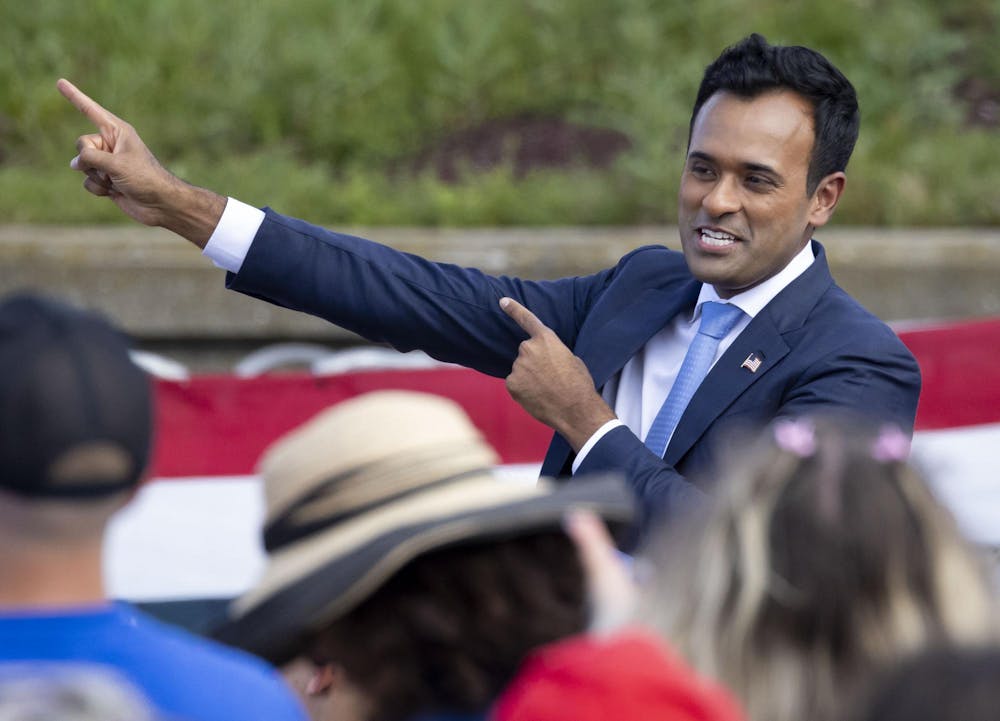It appears that broken clocks are still right twice a day. In the midst of a recent right-wing altercation about the merits of the H-1B visa program, capitalist extraordinaire Vivek Ramaswamy posted an unusually insightful assertion. “Our American culture has venerated mediocrity over excellence for way too long,” he wrote on X, fixating on a lack of societal drive and work ethic at the foundation of American ‘normalcy.’
Though the context of his claim, loaded with questionable impressions about the upcoming presidential administration and high-skilled immigrant labor, was worthy of debate, this much holds true: we have lost sight of our own prowess. Our performance on the international stage is faltering — in the technological sphere, yes, but also in regard to health, labor and most importantly, education.
Ironically, American conservatism is largely at fault for this decline of adequacy; even mainstream Republican figureheads in recent years have publicly degraded the value of higher education, launched flailing missions to remove social justice themes from books and school curriculums and belittled the significant value of immigrant labor, high-skilled or otherwise.
Curiously enough, Ramaswamy himself, accompanied by extremist companion Charlie Kirk, visited our campus on their “You’re Being Brainwashed” tour last semester, touting the uselessness of a college degree and patronize the merit of time in the classroom. Such anti-intellectualism is, astonishingly, completely antithetical to a cry for American excellence — and preserves the same antagonized mediocrity.
American progressivism is not guiltless in this plight, either, though perhaps more well-intentioned. During my junior year of high school, in an attempt to make the classroom more 'equitable,’ my hometown school district implemented grading reforms that, firstly, made it impossible to receive less than a 50% on any test or assignment and, secondly, capped the maximum weighted GPA that could be obtained by any student. In no uncertain terms, these reforms devastated the work ethic of our student body. Not only do these antics sustain mediocrity, they also do a disservice to students and workers everywhere, many of whom pride themselves deeply in their work and are, in fact, motivated by metrics to succeed.
I recognize many threats to the ethical operation of a meritocracy in its current form. But in a better America, such threats are not incorrigible. In a better America, a pure and unbiased form of meritocracy has the potential to open any door for those maltreated by systemic barriers. In a better America, it is such a meritocracy that encourages a student body and a workforce to hone in on the specialty skills required to catapult us into a rapidly developing future.
Where to begin with fueling a country’s capability to achieve unimaginable greatness? I believe, as Ramaswamy claims, that it starts young: “More weekend science competitions, fewer Saturday morning cartoons. More books, less TV. More creating, less ‘chillin.’” We have hope to escape our tunnel of mediocrity only if we establish education to be something more than just a means to an end.
Following education, a cultural work ethic must then surely be upheld by allocating resources to the adult American workforce, much of which has been nearly nullified by a lack of engagement and motivation. Low wages, ultra-competitive job markets and brutal work weeks have permeated the ambition and capability of our best and brightest. Almost counterintuitively, implementing four day work-week policies, like that proposed by Bernie Sanders, would no doubt have an exceptionally stimulating influence for burnt out workers nationwide.
This is not about glorifying a culture of workaholism, or dismantling the valid concerns of workers and citizens everywhere who do very much deserve rest. This is about admitting, societally, that greatness cannot be accomplished without brutal, repetitive effort. It is not irreconcilable with progressivism to care, vehemently and exorbitantly, about the future and state of our country on an international stage. We owe it to ourselves, to our communities, to the generations that will be forced to suffer the impacts of our mediocrity if we do not wake up.




